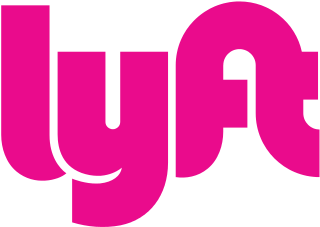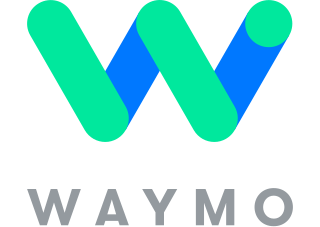
A self-driving car, also known as an autonomous car (AC), driverless car, or robotic car (robo-car), is a car that is capable of traveling without human input. Self-driving cars are responsible for perceiving the environment, monitoring important systems, and control, including navigation. Perception accepts visual and audio data from outside and inside the car and interpret the input to abstractly render the vehicle and its surroundings. The control system then takes actions to move the vehicle, considering the route, road conditions, traffic controls, and obstacles.

The PSA Group, legally known as Peugeot S.A. was a French multinational automotive manufacturing company which produced automobiles and motorcycles under the Peugeot, Citroën, DS, Opel and Vauxhall brands. On 18 December 2019, PSA and Fiat Chrysler Automobiles (FCA) announced that they had agreed to the terms of a binding $50 billion merger. On 16 July 2020, both companies announced the new name for their merged operations, Stellantis. The deal closed on 16 January 2021. As of 2022, Stellantis is fourth largest automaker by sales behind Toyota, Volkswagen Group, and Hyundai Motor Group.
Aptiv PLC is an Irish-American automotive technology supplier with headquarters in Dublin. Aptiv grew out of the now-defunct American company, Delphi Automotive Systems, which itself was formerly a component of General Motors.

Lyft, Inc. is an American company offering mobility as a service, ride-hailing, vehicles for hire, motorized scooters, a bicycle-sharing system, rental cars, and food delivery in the United States and select cities in Canada. Lyft sets fares, which vary using a dynamic pricing model based on local supply and demand at the time of the booking and are quoted to the customer in advance, and receives a commission from each booking. Lyft is the second-largest ridesharing company in the United States after Uber.

Waymo LLC, formerly known as the Google Self-Driving Car Project, is an American autonomous driving technology company headquartered in Mountain View, California. It is a subsidiary of Alphabet Inc, the parent company of Google.

Mobileye Global Inc. is a Delaware domiciled multinational company developing autonomous driving technologies and advanced driver-assistance systems (ADAS) including cameras, computer chips and software. Mobileye was acquired by Intel in 2017 and went public again in 2022.However it remains majority owned by Intel and incorporated in Delaware Mobileye is based in Jerusalem, Israel, and also has sales and marketing offices in Midtown, Manhattan, US; Shanghai, China; Tokyo, Japan; and Düsseldorf, Germany.

Experiments have been conducted on self-driving cars since 1939; promising trials took place in the 1950s and work has proceeded since then. The first self-sufficient and truly autonomous cars appeared in the 1980s, with Carnegie Mellon University's Navlab and ALV projects in 1984 and Mercedes-Benz and Bundeswehr University Munich's Eureka Prometheus Project in 1987. Since then, numerous major companies and research organizations have developed working autonomous vehicles including Mercedes-Benz, General Motors, Continental Automotive Systems, Autoliv Inc., Bosch, Nissan, Toyota, Audi, Volvo, Vislab from University of Parma, Oxford University and Google. In July 2013, Vislab demonstrated BRAiVE, a vehicle that moved autonomously on a mixed traffic route open to public traffic.
A robotaxi, also known as robo-taxi, self-driving taxi or driverless taxi, is an autonomous car operated for a ridesharing company.

Ernestine Fu is an American venture capital investor and author.

Yandex Taxi is an international company operating taxi hailing and food delivery services across Russia, the CIS, Eastern Europe, Africa, and the Middle East. It is owned by Russian tech company Yandex. The company is among the world's leading developers of self-driving technology.

Argo AI was an autonomous driving technology company headquartered in Pittsburgh, Pennsylvania. The company was co-founded in 2016 by Bryan Salesky and Peter Rander, veterans of the Google and Uber automated driving programs. Argo AI was an independent company that built software, hardware, maps, and cloud-support infrastructure to power self-driving vehicles. Argo was mostly backed by Ford Motor Co. (2017) and the Volkswagen Group (2020).
Cruise LLC is an American self-driving car company headquartered in San Francisco, California. Founded in 2013 by Kyle Vogt and Dan Kan, Cruise tests and develops autonomous car technology. The company is a largely autonomous subsidiary of General Motors.
aiMotive is an autonomous vehicle technology company. The company aims to work with automotive manufacturers and Tier1s to enable automated technologies. aiMotive describes its approach as "vision-first", a system that primarily relies on cameras and artificial intelligence to detect its surroundings. The technology is designed to be implemented by automobile manufacturers to create autonomous vehicles, which can operate in all conditions and locations. In September 2017, PSA Group teamed up with AImotive.
Drive.ai, a subsidiary of Apple Inc., is an American technology company headquartered in Mountain View, California that uses artificial intelligence to make self-driving systems for cars. It has demonstrated a vehicle driving autonomously with a safety driver only in the passenger seat. To date, the company has raised approximately $77 million in funding. Drive.ai's technology can be modified to turn a vehicle autonomous.

Zoox, Inc. is a subsidiary of Amazon developing autonomous vehicles that provide mobility as a service. It is headquartered in Foster City, California and has offices of operations in the San Francisco Bay Area and Seattle, Washington. Zoox sits in the Amazon Devices & Services organization alongside other Amazon units like Amazon Lab126, Amazon Alexa, and Kuiper Systems.

Yandex self-driving car is an autonomous car project of the Russian-based technology company Yandex. The first driverless prototype launched in May 2017. As of 2018, functional service was launched in Russia with prototypes also being tested in Israel and the United States. In 2019, Yandex revealed autonomous delivery robots based on the same technology stack as the company's self-driving cars. Since 2020, autonomous robots have been delivering food, groceries and parcels in Russia and the United States. In 2020, the self-driving project was spun-off into a standalone company under the name of Yandex Self-Driving Group.

David Estrada is a Silicon Valley lawyer and legal executive at Cruise LLC, a California-based self-driving car company.
Pony.ai is an autonomous vehicle technology company co-located in Silicon Valley, Beijing, and Guangzhou.
WeRide is an international L4 autonomous driving technology company. Holding driverless test permits both in the U.S. and China,
Motional is an American autonomous vehicle company founded in March 2020 as a joint venture between automaker Hyundai Motor Group and auto supplier Aptiv. Headquartered in Boston, Massachusetts, Motional also maintains operations in Pittsburgh, Singapore, Las Vegas, and Los Angeles. Motional began testing its newest generation of vehicles in Las Vegas, Nevada, in February 2021, and also operates vehicles in Pittsburgh and Santa Monica, California.












